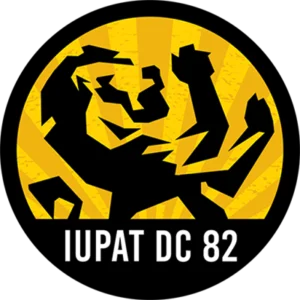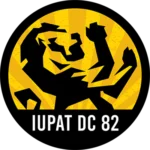This past year, thousands of Minnesotans were out of work and struggling to even find the motivation to keep searching. When hard-working individuals learn that free career training is being offered at a local union, with job placement prospects, they are encouraged to sign up.
Becoming finishing trades workers may not have been on the table for many of our apprentices before 2020. Now that our infrastructure is getting ready for an overhaul and the older generation of workers are retiring, new opportunities are coming into view for many young Minnesotans. Their legacies will literally be written on the walls of skyscrapers.
As the Business Manager/Secretary-Treasurer of one of the largest finishing trades unions in the Upper Midwest, I know firsthand how improvements to our infrastructure cause positive chain reactions. We could have safer roads and bridges, the environmental justice that comes with access to potable drinking water, and a modern public transit system – and those are just a few of the exciting changes in quality of life we could have coming down the pipeline.
When we think of infrastructure, we often think of roads and bridges. But rebuilding our infrastructure also means creating safer and more modern schools, libraries, public facilities, transit systems, and rural internet, an often-overlooked aspect to ensuring an infrastructure fit for the 21st century.
Unfortunately, the current funding level isn’t nearly enough to ensure that all of our apprentices will have consistent long-term work. Though a $1.9 Billion infrastructure bonding bill sounds like a lot to invest on paper, when all is said and done, that money will just about cover the foundational stages of the major projects Walz cited, but it likely can’t finish them. Governor Walz took an important first step, but it’s Minnesotans’ job to hold him accountable to increase that investment.
When funding for infrastructure isn’t robust enough, it can create serious ramifications that severely impact workers and taxpayers. Many contractors in our region could take advantage of our state government by low-balling their estimate on how much a project could cost. Wage theft in our region is still running rampant, primarily with employers misclassifying workers. If the project is awarded to those types of unscrupulous contractors, there’s a higher likelihood that they hire untrained workers who will be underpaid and taken advantage of, cut employee pay, or make expensive change orders to generate a higher profit margin – all while risking the health and safety of workers and the community. Are these risks Minnesota taxpayers are willing to take?
Right now, Biden is planning a robust federal package with “The Biden Plan to Build a Modern, Sustainable Infrastructure and an Equitable Clean Energy Future,” similar to the plans we have heard from past administrations. Unfortunately, those past plans have been full of empty promises. During Trump’s time in office, he presented an infrastructure plan. Unions were on board with a plan from any candidate that ensured that their members and potential members gained work opportunities. However, that plan relied on state and local funding along with private investments. Biden is now carrying the torch by enabling a federal infrastructure bill that empowers workers and communities and doesn’t rely on private corporations for funding.
The need for legitimate federal infrastructure funding has never been higher, and Biden has the opportunity to prove to Minnesotans that he stands with us and is willing to help us truly “Build Back Better.”
With COVID-19 wreaking havoc and available hospital beds down to the single digits, we as taxpayers have no choice but to demand increased state and federal infrastructure funding immediately. Our rural hospitals have been in need of repair for decades, and construction industry experts are calling the $1.9 Billion infrastructure bonding bill, “too little, too late.”
Now is Minnesota’s time to take back our infrastructure.
A deeply-rooted bias that begs to be challenged is that government grants for small business owners or contractors is “free money.” What those that hold this bias often neglect to consider is how prospective entrepreneurs from wealthy backgrounds often receive large contributions from their networks throughout the process of launching their companies. Those that don’t come from money aren’t granted the same opportunities because they simply lack the financial infrastructure necessary. If more federal funding was given to small businesses, it would level the playing field for rural residents who would undoubtedly stimulate the economy and provide good-paying jobs for the community. If that doesn’t happen, what are we really doing as taxpayers?
Here at IUPAT District Council 82, we know that prioritizing small rural businesses will move us into a more equitable, profitable future. Our economy will thrive, our state will become a new model for modern American infrastructure, and our children and grandchildren will have safe, strong bridges into their futures.
Good workers always finish what we start. This $1.9 Billion bonding bill is surely a start, but it’s not going to fix our rural hospital system; it’s not going to prioritize rural residents who want to launch businesses; it may not even put our tax dollars to their best use. Tell Governor Walz to vouch for a more robust, inclusive infrastructure bonding bill today.
####
Jeff Stark is the Business Manager/Secretary-Treasurer for IUPAT District Council 82.



